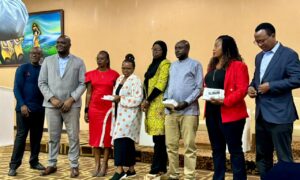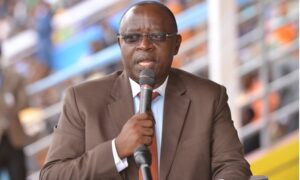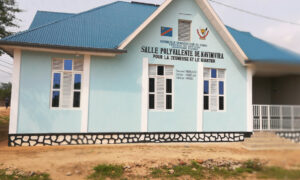As expected, the Burundian authorities announced the victory of the party in power since 2005, the CNDD-FDD, and its presidential candidate, General Major Evariste Ndayishimiye, while certain diplomats, civil society and the rival party, the CNL of Agathon Rwasa, denounce massive fraud. The final results will be announced on June 4.
According to official results, the officer would have won the presidential election with 68.72%, against 24.19 to his main rival, Agathon Rwasa; there will therefore be no need for a second round.
The CNL has denounced fraud. We note that Agathon Rwasa would only get 24.6% of the vote in Kabezi (Bujumbura-rural), one of the party’s strongholds, whose meetings drew impressive crowds during the campaign, despite the violence by the militia of the official party, the Imbonerakure.
While the rallies of the candidate CNDD-FDD attracted less and less public. The opposition also highlighted the case of Musigati (Bubanza province), where the candidate of the ruling party, General Major Evariste Ndayishimiye, would get 99.9% of the vote.
The CNL has published its own results, which give it 58.98% in the presidential election; 57.08% in the legislative elections and 57.58% in the municipal elections.
Very many irregularities.
These provisional results are announced when NGOs and the opposition denounced many irregularities before and during the electoral campaign: the electoral register had not been made public, which had prevented citizens from verifying that they were well registered; foreign observers have been largely excluded.
The electoral campaign took place in a climate of violence and intimidation of the opposition. CNL candidates have been arbitrarily excluded from the lists, assures this party, like the Minister of Culture and Sports, Pelate Nyonkuru, on the accusation of having made prison, which is false according to his party.
On the day of the presidential, legislative and municipal elections, on May 20, social networks were cut; taking photos at polling stations was prohibited; according to the CNL, the dead, minors and people in exile were voted on; some received “up to 50 proxies” and voter cards that the administration had refused to give to people known as pro-CNL were distributed to others; supporters of the ruling party, the CNDD-FDD, or members of the administration forcibly entered the voting booths to verify that the voters thus violated were voting for the “good” candidate; Opposition agents – in particular CNL – have had their accreditation confiscated from entering polling stations or have been prevented from doing so despite their accreditation.
The last major independent media in the country, the others having been destroyed – Agathon Rwasa adds that opposition agents had to sign blank reports and that there was “ballot stuffing”; he cites the case of Giteranyi (Muyinga province), where 100,000 votes were counted when there were, according to him, only 65,000 voters.
Those who tried to denounce the abuses, said the head of the CNL, were imprisoned, like Pascal Nahayo, army officer stationed in Mutumba (prov. Of Bujumbura)
Dead, missing injured and arrested.
In an official statement, the CNL denounced the arrest of “more than 300” of its activists, “including 200” for the only day of the polls, mainly agents and officials. Since the start of the campaign, this party has also deplored, he said, three killed, fifty wounded and a dozen members “kidnapped and missing”.
Adding to the suspicion, the president of the Independent National Electoral Commission – denounced as a partisan – Pierre-Claver Kazihise announced on Saturday that he did not yet have all the minutes of the election last Wednesday, while these, by law, must be posted on the day of the vote – which was not the case in many places – and transmitted immediately. The opposition assured that new forms for the minutes had been sent to certain regions, in order to produce new results.
What will the CNL electorate do?
The big question now is how will the CNL electorate react. While Washington called for avoiding the use of violence and addressing “the legal institutions established to resolve potential complaints”, the CNL “reaffirmed that its political struggle is and will always be done by law to assert the verdict of the Burundian citizen ”.
Agathon Rwasa was a little more ambiguous: while he assured the newspaper Iwacu that he was going to “seize the organs empowered to decide” on the outcome of elections which he challenges, he also rejected a march “of compromise in compromise, in this situation where criminals enjoy total impunity ”.
The situation is however difficult for Agathon Rwasa. His spokesperson – who has played this role since the time they were in the maquis – Aimé Magera, ensures that certain CNL proxies have reports of “authentic” electoral results and that the party “reserves the right to do so good use “.
But the Burundian Constitutional Court passes for granted to the CNDD-FDD. Appealing to a non-Burundian court of justice – from the East African Community or the International Criminal Court, for example – takes so many years that it could have no effect on the mandate of General Major Ndayishimiye, which was planned for a long time. 7 years since the last constitutional reform.
Will Rwasa therefore “go to bed”, as he did in the controversial elections of 2015, in exchange for posts for his party? If so, will its base, brutalized by pro-CNDD-FDD forces, support it? Will the CNL embark on the armed struggle again?
























